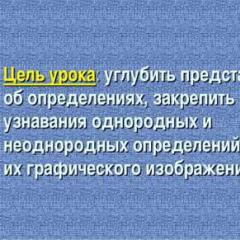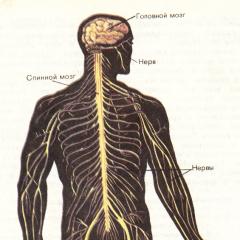Lyceum 1580 results. Specialized educational and scientific center. Computer science training at the lyceum
This year Lyceum 1580 enrolled 5th grade for the first time. One of my students successfully passed the exams and entered there. I am publishing the first impressions of mother and son.
About choice.
We were faced with a choice: go either to LIT 1533, where we got through the main list, or to 1580 at the Bauman Moscow State Technical University. The parents did not choose the school, the child chose the school. We described all the pros and cons of each school to the child and said that we would support any choice. My son chose 1580.
Pros. Parents like it
in all subjects (although mathematics predominates), non-core subjects are taught at the same level.Lots of different mathematics. We get 6 hours a week of school mathematics (we study according to Peterson). 1 hour per week - chess/logic. 2 hours a week circle taught by 2x2 laboratory staff. So no need to look for any additional classes on the side.
Management Interest schools and teachers themselves educational process— the wishes of the parents do not go unnoticed. For example, we wanted to change the program English language to a stronger one - they changed it for us and added an extra hour. They said that if the children do not have enough hours of mathematics/special mathematics, they are ready to add more.
Another example of the administration’s attitude towards children’s requests. The 5th graders loved table tennis (there is a table in the hallway), but the high school students also wanted to play. A conflict arose: the older students did not allow the younger students to play. Then the boys contacted the administration, and first agreed that there would be a schedule, who would play when, and then it was decided to install a second table (and it was free).
Nutrition for children. The school cooks cook in the canteen, which is why, apparently, the children like it: porridge, casseroles, etc. for breakfast, a variety of soups, main courses for lunch, you can always buy something extra: buns, cookies.
Pros. Children like it
Mathematics.
There are many interesting subjects - we are probably the only ones who have physics and chemistry in the fifth grade.
Good teachers.
Delicious dining room :), tennis table on the floor, many sports clubs.
Cons. Parents and children don't like it
The only thing I probably don’t like is the six-day workday and studying on Saturdays. It’s a little hard with just one day off, but you get used to everything.
Pleasant surprises
A pleasant surprise is the interest of the school administration, they hear not only parents, but also children - this is worth a lot.
Also: if there is a window between lessons and sections at school, you can go to the library to do your homework.
General impressions
So far the school is meeting our expectations, let's see what happens in a year.
It’s hard because I’m not used to it, a lot of items have been added compared to primary school. Added: computer science, geography, biology, physics, chemistry, labor. The boys began to do something with their hands, for example, turning out parts - they really like it.
So far the mood is positive, I hope it continues.
Students from 4th to 10th grades are accepted for courses. For students in grades 8-10, the sum of grades must be at least 16 points in the subjects: algebra, geometry, physics, Russian for the previous year. For students of 4th, 5th, 6th and 7th grades - at least 8 points (the sum of annual grades in mathematics and Russian language). These desirable points assume a certain degree of preparedness of students, because During the lessons the program of the given year of study is mastered.

The main objectives of the courses are the mastery and consolidation of knowledge by students, the formation of student interest in the subject and the development of their abilities. Techniques, methods and forms of work are determined by the above objectives of the course and its content. The need to repeat and study a large volume of material also presupposes independent activity of students - solving problems, elaborating theoretical material. Self-contained system written works and intermediate tests will help students and their parents realistically assess the level of skills and knowledge of the student.
The duration of the training course is approximately 5.5 months (starting from October). Courses are valid for on a paid basis. Payment is made in two stages.
For your information, those entering the school in grades 5-7 will study at the address - st. Stasovoy, 8 - building 3 (metro Leninsky Prospekt).
Courses for 4th and 5th grade students will also be held at the address: st. Stasovaya, 8. Be careful when registering, check the schedule!
In the new year 2020, they begin on January 9 - as scheduled. Classes in 2019 end on December 30 - as scheduled.
Pay strictly until January 11, 2020 and convey copy with your child for the first lesson of the course after the holidays.
Those legal representatives whose children they won't to continue studying in the courses, they must write and bring (transfer, send a scan by email [email protected]) statement and teaching aids to the reading room until December 23, 2019
Receipt
Receipt for 1580
Discount receipt
Discount receipt for 1580
Lyceum No. 1580 belongs to the state budgetary educational institutions of Moscow. Previously, it was a comprehensive school with a physics and mathematics focus No. 1180 under the auspices of MSTU named after N. E. Bauman. Now Lyceum No. 1580 is fully included in the base of this university and specialized educational and scientific center, where students study computer science, mathematics and physics in depth from eighth to eleventh grade.
History of the Lyceum
School No. 1180, which was supervised and supervised by the university in every possible way since 1989, in the first year of its existence was forced to conduct classes only in the second shift, since it shared the premises with school No. 537. Even then, the teachers were almost entirely from the university. In 2000, the school became a lyceum and received the number under which it is registered now.
Nine years later, school No. 537 joined the lyceum, which now had two buildings on Balaklava Avenue - houses 6 and 6a. In 2015, Lyceum No. 1580 was further expanded. The address on Stasovaya Street, building 8, became the location of the third building of this educational institution due to the fact that secondary school No. 639 joined it.
Until 2011, Lyceum No. 1580 taught only schoolchildren in the tenth and eleventh grades, with a predominant enrollment in the tenth grade. Structure educational process became completely university.
Educational process
Since 2006 academic year GBOU Lyceum No. 1580 has four parallels: eighth, ninth, tenth and eleventh grades, each of which has about thirty students, sometimes a little more, but in general there are always about six hundred students in the lyceum. Recruitment is not carried out only for ninth grades, for the rest it is mandatory. They study here for free, but a lot: six very intense days a week, lessons only in the first shift, from nine o’clock in the morning.
An academic hour (forty-five minutes) lasts for each lesson. From the tenth grade the organization educational activities changes the routine: a university system appears - education in semesters, which includes seminars, lectures, tests, laboratory work, exams and special courses. Academic performance is recorded in the Education System for high school students, which was adopted by Lyceum No. 1580; reviews from parents are noted as excellent.
Best school in Moscow
Now the lyceum employs teachers with the highest qualifications, more than a hundred in total, including five doctors and thirty candidates of science, two honored teachers of the Russian Federation. Every year, over two hundred and fifty graduates of the lyceum receive a certificate of maturity along with a lyceum badge. And everyone goes to universities one hundred percent, and more than ninety percent go to their native Moscow State Technical University named after Bauman. In 2011, Lyceum No. 1580 took fourteenth place and received ten million rubles from the capital authorities, and in 2014 it already took the top line of the same rating.

One-year training
A characteristic feature of the lyceum education process is the one-year training of eleventh grade students. After the tenth grade, future graduates are tested in the general stream and, of course, differ significantly from those tenth graders who have already studied at the lyceum for one or several years.
Not everyone, even a young person full of ambitions, will decide to take on such an incredible workload: “one-year students” must complete a two-year specialized education with an in-depth focus on mathematics, physics and the Russian language in a year, and no one will make discounts on other subjects for high school graduates.
Results
Nevertheless, this practice has been around for many years and shows excellent results: “one-year students” not only cope with these enormous difficulties, but also immediately enroll in further studies. For the most part, they continue the chain: Lyceum No. 1580 at MSTU. Bauman - actually
However, some graduates go to or to other technical universities in Moscow. You need to understand that studying with teachers from Baumanka greatly facilitates further admission. Lyceum No. 1580 willingly accepts Olympiad winners and those motivated young men and women who are already medal winners for one-year training.

Exams
The Lyceum provided for students in the eighth and tenth grades not only in-depth study mathematics and physics, but also transfer exams in these subjects, because otherwise the children will not be able to withstand the increased requirements for admission to the Bauman Moscow State Technical University. But, difficult as it may be, all students pass school exams 100% and successfully, as well as university entrance exams.
Another positive practice that the university has introduced and is constantly improving will greatly help students in the future: all tenth-graders who enter the graduating class undergo mandatory introductory practice right at the university. There, lyceum students get acquainted with faculties and departments, getting to know student life better and the level of knowledge to which they need to strive. Eleventh-graders regularly meet with representatives of departments and faculties of MSTU.
Physics at the Lyceum
At its core, the program content coincides with the main physics course taken at school, but the additions to many sections that are important for future university students are very significant. Thanks to these additions, mastering physics and engineering disciplines in higher school will not seem unattainable.
Lyceum students in the ninth, tenth and eleventh grades study most of the time in a university style: with lectures, practical classes, seminars, and laboratory work. At lectures, as well as with students, teachers present the material in the form of the most important theses and with analysis of typical examples. Practice makes perfect theoretical knowledge, introduces illustrations of individual theoretical positions, teaches techniques that help in solving physical problems.

Laboratories
As they work in the laboratories, lyceum students become acquainted with many things that will not be known to students of other schools until the start of their studies at the university. For example, organizing a physics workshop, where the work performed is closely related to the most important provisions of the theory. Frontal laboratory work is not carried out here because it limits independence and creativity students to a particular experience.
Laboratory work is carried out strictly according to an individual schedule. Even the organization itself practical classes copies the scheme adopted in universities: before work, each student is required to obtain access to it, demonstrate close familiarity with the theory, the main provisions of which he is going to confirm here, knowledge of the design of the installation with which the work will be carried out. Then the future student does the work himself, calculating all the necessary series of necessary measurements, processes the results himself, taking into account errors, and defends these results in a subsequent conversation with the teacher.
Mathematics at the Lyceum
In the system of training lyceum students, the mathematical program for studying the course laid down secondary schools, adds the basics of the classic higher mathematics. In the near future, this will help students study much more deeply both set theory and mathematical analysis infinitesimal quantities, and the foundations of integral and differential calculus, that is, everything without which there is no basis for engineering sciences.
In the same way, lyceum students become familiar with mathematical objects and concepts that are not included in the programs of regular schools. Mathematics programs are implemented using university teaching methods, otherwise success is impossible. Lyceum students are primarily offered a lecture-seminar system. And for the whole semester, students receive individual homework assignments to test the knowledge and skills they have acquired by listening to lectures and participating in seminars. The entire mathematics program for the last two years was completed in 640 hours, of which 160 were lectures and 480 were seminars.

Computer Science at the Lyceum
The mandatory minimum, which is allotted for the study of information technology in regular schools, is clearly insufficient to continue education at the Bauman Moscow State Technical University. Therefore, the number of hours has been increased study load, and the entire load in computer classes is divided into two parts: programming and a user course, that is, computer literacy.
Lyceum students program in Pascal, and in-depth study of computer science adds C++ and Delphi. The user course involves the study of graphic and text editors and spreadsheets. Global computer networks, the basics of the Internet, its services and the basic principles of browsers are also studied, e-mail and Microsoft Outlook email program.
Computer Science + Mathematics
No. 1580 does not prioritize user skills - this is too small a task for such a promising educational institution, and it is solved quickly. Here students become familiar with how to use information Technology in solving scientific and technical problems. Lyceum students also study methods of mathematics that are used in computer science. Here and numerical methods solving equations, and analytical geometry, and sorting in arrays, and search tasks in game programs, and graphics in modeling problems, and in high-dimensional problems.
At the end of the course, a test is provided: completion and defense of an individual assignment based on the results of two years of study. It is possible already in the eleventh grade to complete qualifying work and receive a certificate of acquisition or webmaster. Lyceum No. 1580, reviews of the level of computer science teaching in which is beyond praise, is worthy of applause.
Sports at the Lyceum
Truly, Lyceum No. 1580 is famous not only for mathematics and physics. Moscow also knows about the sporting achievements of its students. Since its opening, under the leadership of excellent teachers, various lyceum teams have won city, district and regional competitions.

Lyceum students can be proud of their friends and classmates: volleyball, basketball, football, skiing, biathlon, athletics, even table tennis and kettlebell lifting - in whatever sports the lyceum students won victories!
The sports town, reconstructed and well equipped, is never empty. In the evenings, residents of nearby areas can work out here. The city loves its future elite - high-class engineers who will be graduated from the Bauman Moscow State Technical University, and in the meantime it is raising Lyceum No. 1580. In the spring, almost the entire city gathers at Baumanka!
Director about the Lyceum
The director of the lyceum, Sergei Garaskin, is confident that the principles of education here are absolutely correct, because it is practically a “hand-assembly” of excellently educated personnel for the country. At the moment there are a lot of children in the lyceum: twelve graduating classes, twelve tenth grades, six eighth grades and six ninth grades. And for such a conveyor to work well, the recruitment system must be very clear.

The admissions committee works at the lyceum all year round: it answers all questions from parents, in addition to mandatory days open doors. Testing for enrollment here is two-stage: during spring break, and then in May. Three subjects are tested: Russian language, mathematics and physics. The Russian language, despite the form of passing and failing grades, is most often a stumbling block for those wishing to enter the lyceum.
Special classes are available:
- lyceum,
- profile.
Subjects studied in depth:
- mathematics,
- physics.
Admission rules
State budget educational institution In the city of Moscow, Lyceum No. 1580 (at MSTU named after N.E. Bauman) carries out annual enrollment in grades 8, 10 and 11.
Our lyceum has an interschool elective. Teaching at interschool electives is aimed at preparing students for admission to the lyceum.
Admission to Lyceum No. 1580 is carried out in accordance with the admission rules.
Exams at the lyceum are held in 2 streams: during spring break and in May.
Registration for testing for admission to the lyceum is made on designated working days.
When registering you must have:
1. a diary or statement with grades for a quarter or half a year,
2. passport of the applicant,
3. birth certificate (for those entering 8th grade),
4. blank envelope with a stamp,
At the Lyceum you can buy methodological literature to prepare for exams.
Admission to the Lyceum is carried out on a competitive basis.
Applicants must demonstrate their knowledge in the following disciplines:
- Mathematics - in writing.
- Physics - in writing.
- Russian language - written (test).
Four astronomical hours (240 minutes) are allotted for solving problems in physics and mathematics, and 1 astronomical hour (60 minutes) for solving a test in the Russian language.
Examination exam papers conducted anonymously.
The verified work can be found here.



